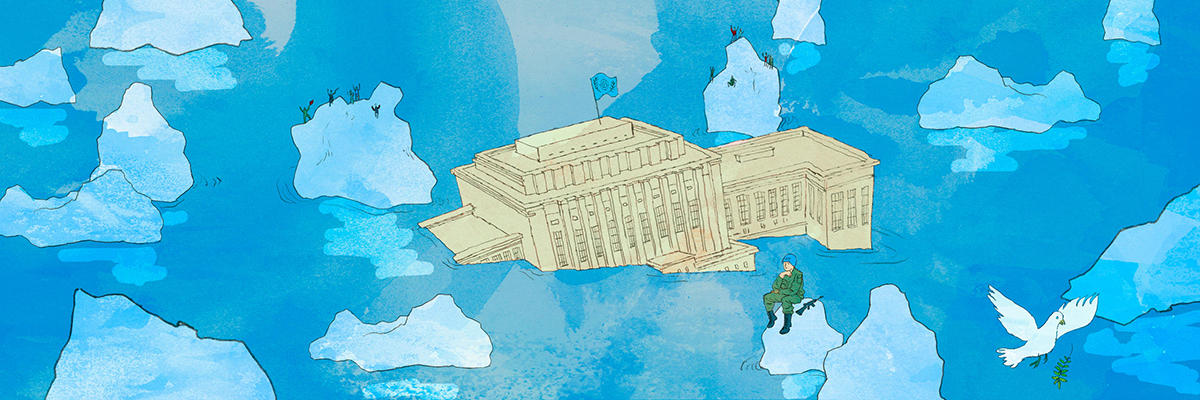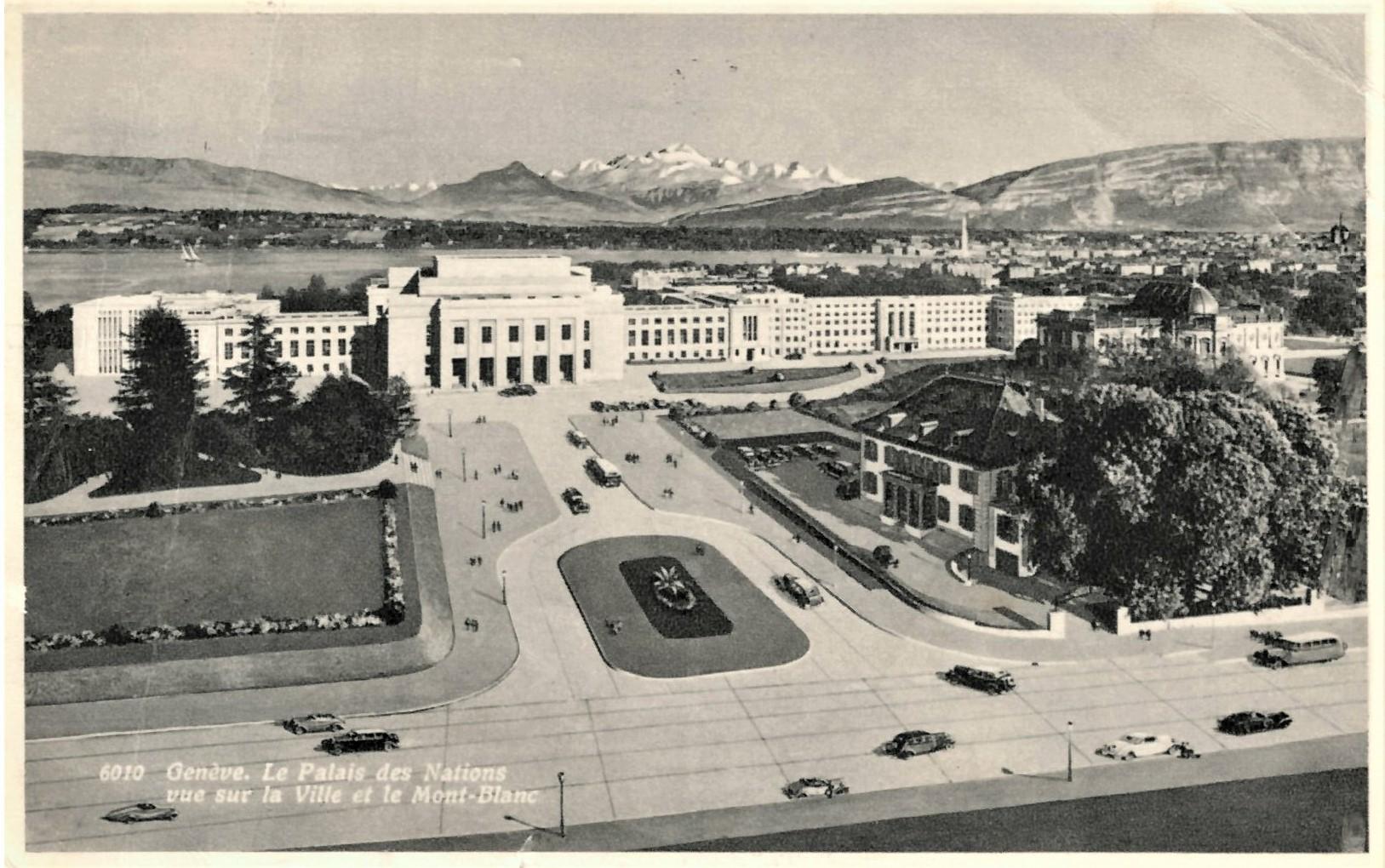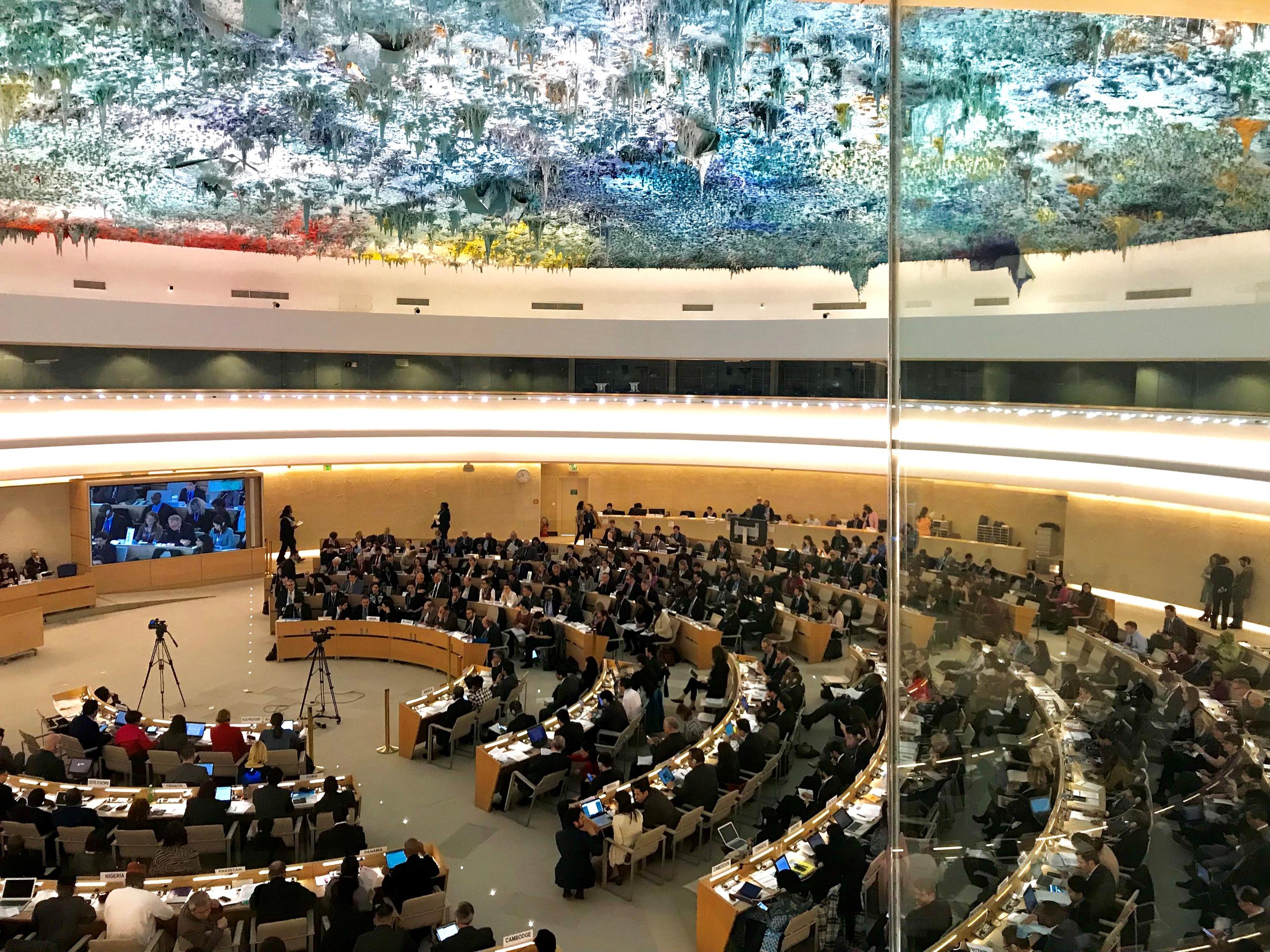Will the United Nations soon be obsolete?

Is the international order capable of meeting the enormous challenges facing states and societies around the world? We look at the four main challenges facing International Geneva.
As the European headquarters of the United Nations, Geneva is helping mark the 75th anniversary of the founding of the UN and 100 years since the formation of the League of Nations (LoN). Geneva is one of the two most important global centres of multilateral diplomacy together with New York. In Geneva, the challenges facing the entire planet are debated and negotiated before being sent to New York, where the states decide which options to respond to.

More
Geneva’s long-running diplomatic ballet
This organisational model for relations between states is more precious than ever; the Geneva authorities have named the celebrations #Multilateralism100. It is an unequivocal call for action at a time when the world’s policeman – the United States – continues its slide towards unilateralism, a desire for power without regard for the sovereignty of other states or for international law that governs relations.

More
Trump jitters cast shadow over close US-Geneva ties
The challenge of peace
Peace: This was the raison d’être for the creation of the LoN, as it is for the UN, two organisations born from the ashes of two world wars that ravaged Europe and Asia. Each time, the victors of these two international conflicts wanted to establish a judicial framework based on man’s right to self-determination. The aim was to ensure that peace would not rest solely on the balance of power between the major powers but would take account of the interests of all member states and their citizens.

More
With Geneva, Switzerland strode boldly into the 20th century
It is an objective which is far from being achieved, according to UN secretary general Antonio Guterres.
“Today, a wind of madness is sweeping the globe. From Libya to Yemen to Syria and beyond – escalation is back. Arms are flowing. Offensives are increasing. […] Meanwhile, Security Council resolutions are being disrespected before the ink is even dry,” warned Guterres on February 4, 2020.
So, in terms of collective security, is the UN on the verge of becoming obsolete, as happened to the LoN at the end of the 1930s?
If the UN’s executive branch – the Security Council – is paralysed, other international bodies help pacify societies. The UN is based on three pillars: peace and security, development and human rights. As pointed out by former UN secretary general Kofi Annan in 2005, these three areas are interdependent.
“There cannot be security without development nor development without security. And one and the other each depend on the respect of human rights and the state of law,” Annan said.
But for at least a decade, civil liberties have been eroded even at the heart of liberal democracies such as the US, but also in Europe.

More
Is the age of liberal democracy coming to an end?
At the same time, authoritarian regimes like China are taking advantage of western weaknesses to tout an alternative model of economic success that excludes complete respect for civil and political rights. The heart of modern democratic regimes, human rights, are being questioned even within the international bodies that are supposed to defend them. In Geneva, the UN Human Rights Council is the main focus of this battle which has global implications.

More
China’s ‘win-win’ rights initiative makes waves in Geneva
If confirmed, the backsliding of democracies could influence the way the world responds to the two major issues of the 21st century: the climate and environmental crisis, and the digital transition of the economy and of society.
The health challenge
The coronavirus SRAS-CoV-2 pandemic is the black swan of 2020 – the unpredictable event shaking the world. With the World Health Organization (WHO) on the frontline, the UN can demonstrate the importance of its role as a coordinator of international health and national policies.
The pandemic which surprised many states was extremely predictable. Following epidemics like Aids in the 1980s and SARS in 2002, WHO member states revised international health regulations in 2005 to assist countries to work together to contain such viruses.

More
Can countries keep up with the spread of Covid-19?
However, as this international instrument has not been properly applied, coronavirus has spread worldwide. It remains to be seen whether the shock of Covid-19 and its multiple consequences will give the UN a new legitimacy or render it meaningless, like the League of Nations a century ago.
The environmental challenge
In relation to the climate, Guterres reiterates that there can only be collective solutions which engage all UN member states. Could this existential threat to humanity as a whole cause the international community to split, as happened in the wake of the two world wars last century?

More
COP25: a decisive conference for the future of the planet
At the same time, the world is engaged in an industrial revolution that is larger and more profound than those which took place in the 19th and 20th centuries. The digital transition is radically transforming the economic and financial world, as well as the functioning of societies and the democratic rights designed to govern them. The individual and collective rights contained in the UN Charter are therefore under serious threat.

More
Has the global labour organisation advanced workers’ rights?
The digital challenge
The UN is attempting to regain control over this issue, notably from Geneva, by establishing legal norms to guide the digital transition so that it benefits everyone while respecting their fundamental rights.

More
Big companies back new CyberPeace Institute in Geneva
Adapted from French by Sophie Douez

In compliance with the JTI standards
More: SWI swissinfo.ch certified by the Journalism Trust Initiative









You can find an overview of ongoing debates with our journalists here . Please join us!
If you want to start a conversation about a topic raised in this article or want to report factual errors, email us at english@swissinfo.ch.